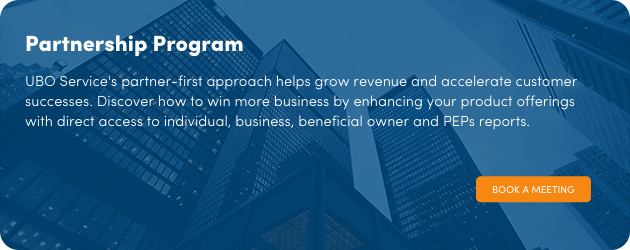Leveraging Regtech Collaboration for Success
Regulatory Compliance is far more than just a check-box exercise. Organisations that adopt this approach may seem compliant on paper but are often found to be lacking when an incident or regulatory audit occurs. By shifting the compliance mindset to focus on becoming proactive, obliged entities can act in anticipation of future needs, or changes, reducing the likelihood and impact of compliance breaches across the organisation. In response, the use of new technologies and innovative approaches are driving the rise of regulatory technology (Regtech) to improve the effectiveness and efficiency of Anti-Money Laundering (AML).
Regtech promises to cut the cost of compliance processes but also to improve effectiveness to make them quicker and more reliable, reducing hassle for customers, and lessening the risk of costly compliance failures. If done right, the potential of RegTech extends beyond making compliance more efficient and can be seen as a source of competitive advantage; offering customers a frictionless experience, increasing internal efficiencies, and reducing human errors.
Moving Towards Digital Adoption and Embracing Regtech
The rapidly evolving regulatory environment and increasingly complex business models are driving financial institutions to adapt and embrace innovation and transform to remain competitive. Regtech is an important area in this regard; harnessing the power of technology to create a positive customer experience and embrace a risk-based approach to regulatory compliance.
40% of the banks included in a Financial Innovation and RegTech industry survey, completed by the EBA, have implemented at least one Regtech solution.
Regtech is expected to continue to grow amid emerging new risks from tech-savvy criminals. There is also an increasing expectation from the regulators to robustly manage risks and to act in the best interests of the customers and the market. As transactions become more complex, there is a growing need to meet these expectations in a cost-effective manner through Regtech solutions. It comes down to driving change, collaborating, and working with new technology.
Collaboration is Key for an Effective AML, Risk-Based Approach
Regulators and supervisory agencies are leading the shift to collaboration within the compliance sector, there are genuine efforts in the industry to work together. Exploring better ways to collaborate can help build a compliance ecosystem based on standardised data and intelligence which is easy to understand and explain to counterparts.
- The Financial Action Task Force (FATF) recently published an exhaustive report highlighting the opportunities and challenges of new technologies for AML/CTF.
- The European Banking Authority (EBA) recommends the wider use of technology and raises awareness of possible use cases for Regtech in supervisory reporting.
Overall, financial institutions and regulators are shifting their approach around compliance to work together. They are openly encouraging financial institutions to use Regtech for consistency and to lower the cost of compliance (experiential labs, publications, and other avenues to engage the industry.) This is in line with pushing for a risk-based approach to effectively manage AML compliance and challenge those that continue to apply largely rule-based systems or box-ticking exercises.
There is no sign that regulatory rule changes will start easing up. In fact, with hundreds of live regulatory changes currently in flight, the potential for RegTech to enable firms to govern, share data with regulators and overcome this constant change is enormous and innovative solutions are needed in response.
Transforming Risk Management & Compliance with Regtech
Regulatory technology is here to support and enhance compliance standards and offer a seamless customer experience at the same time. Adoption of a Regtech solution like UBO Service can contribute to lowering the cost of compliance by implementing new processes and procedures to comply with ongoing regulations. This is creating outcomes where everyone is happy:
- Better customer experience: a faster, seamless customer onboarding experience in line with what regulators demand and customers expect.
- Regulators and supervisory agencies receive audit reports that are accurate and relevant.
- Obliged entities comply with current and emerging customer due diligence requirements.
- Financial institutions and other obliged entities protect their customers and avoid regulatory fines.
- Effective due diligence on beneficial owners, corporate customers, and politically exposed persons (PEPs) reduce the risk of bribery, corruption, and money laundering.
Adopting a Regtech solution like UBO Service will help reduce regulatory risk and operational costs. Our partnership program supports financial institutions and obliged entities to manage the increasing complexity of regulatory requirements activities and provide the relevant expertise, products, and services.
.png)

